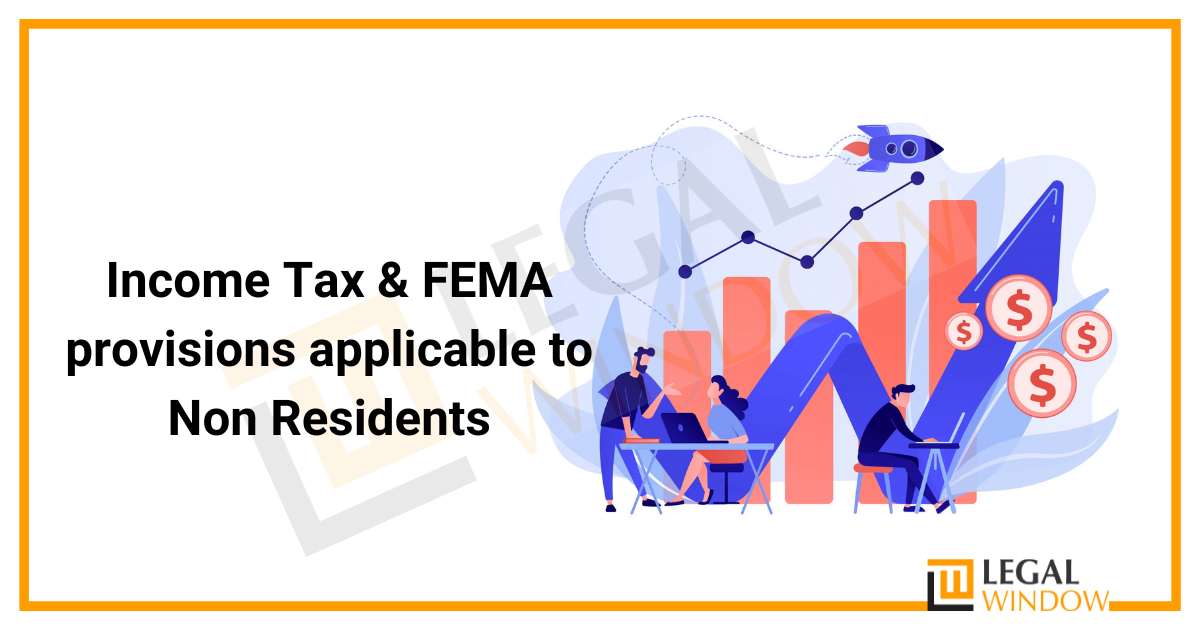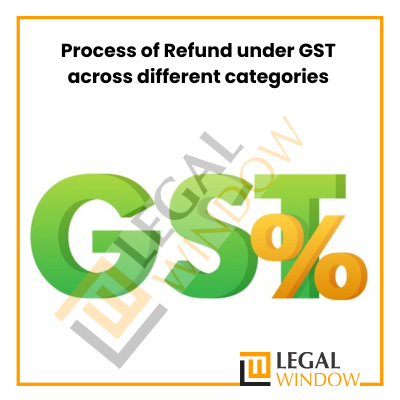
If an individual is classified as ‘non-resident’ then the tax inference is similar to that of ‘RNOR’ status. In the case of NRIs, only income earned or accumulated in India will be subject to income tax. For “NRI” income like any salary earned or accumulated in India, income from the rental of the house situated in India, profits and gains from a business established in India, income from capital gain from house property, shares, and securities, gold, etc. of Indian origin, other sources of income like savings account interest and fixed deposits earned in India will all be taxable in India. This article will discuss income tax provisions applicable to non-residents.
| Table of Contents |
Income tax provisions applicable to non-residents
- If your status is ‘NRI’, your income earned or accumulated in India is taxable in India.
- Salary received in India or wages for service rendered in India, income from a house located in India, capital gains from transfer of assets located in India, income from fixed deposits, or interest on a savings bank account are all examples of earned or accrued income in India. This income is taxable to NRIs.
- Income earned out of India is not taxable in India.
- Interest earned on NRE and FCNR accounts is tax exempt. Interest on NRO accounts is taxable in the hands of NRIs.
- NRI or not, every individual whose income exceeds Rs 2, 50, 000 is required to file a tax return in India.
Taxable Income for NRIs
If you are an NRI and you are getting your salary directly into an Indian account, it will be subject to Indian tax laws. This income is taxed at the rate you belong to.
- Salary income: Income from salary will be treated as income in India if your services are rendered in India.
So even though you may be an NRI, if your salary is paid for services you render in India, it will be taxed in India irrespective of where you receive the income.
Suppose your employer is the Government of India and you are a citizen of India. In such a case, if your service is rendered outside India, your salary income will be taxable in India.
- Income from real estate: Income from property situated in India is taxable in the hands of an NRI.
The calculation of such income is done in the same way as for a resident. This property can be rented or vacant. An NRI can claim a standard deduction of 30%, deduct property taxes, and avail of home loan interest deduction. NRIs are also allowed a deduction for principal repayment under Section 80C. Stamp duty and registration fees paid on the purchase of the property can also be claimed under Section 80C.
Income from real estate is taxed at flat rates as appropriate.
- NRI rental payments: A tenant paying rent to an NRI owner must remember to deduct TDS at 30% while paying rent.
Income can be received into an account in India or an NRI account in the country where they are currently residing.Form 15CB: In Form 15CB, the CA certifies the details of payment, rate of TDS, and deduction of TDS under Section 195 of the Income Tax Act, any applicable DTAA (Double Taxation Agreement), and other details about the nature and purpose of the transfer.Form 15CB is not required when: The transfer does not exceed Rs 5, 00, 000 (total for the financial year). In this case, only Form 15CA needs to be submitted.
If lower TDS has to be deducted and a certificate under Section 197 is received, lower TDS has to be deducted on the order of AO.
Neither is required if the transaction falls under Rule 37BB of the Income Tax Act which lists 28 items. See the full list here.
In all other cases, if it is a transfer outside India, the person requesting the transfer should take a CA certificate in Form 15CB. After certification, submit online Form 15CA to the government.
- Income from other sources: Interest earned on fixed deposits and savings accounts held in Indian bank accounts is taxable in India. Interest on NRE and FCNR accounts is tax exempt. NRO accounts are fully taxable.
- Income from business and profession: Any income earned by an NRI from a business controlled or established in India is subject to NRI tax.
- Income from capital gains: Any capital gain on the transfer of a capital asset situated in India will be taxable in India. Capital gains on investments in Indian shares and securities will also be taxable in India. If you sell the property and have a long-term capital gain, the buyer will deduct TDS at 20%. However, you can claim capital gains exemption by investing in real estate under Section 54 or investing in bonds with a capital gain under Section 54EC.
FEMA provisions applicable to Non-Residents
The Foreign Exchange Management Act (FEMA) is a law enacted by the Government of India in 1999 to regulate foreign currency flow across Indian borders.
FEMA replaced the earlier Foreign Exchange Regulation Act or FERA, which was more stringent, as a result of the economic reforms introduced in the Indian economy in the early 1990s. FEMA aims to facilitate foreign trade and their payments in India, systematic improvement, and continuation of foreign exchange in the Indian market. It outlines the procedures, formalities, and business of all foreign exchange transactions in India.
It is important for Indians working abroad to understand the FEMA rules for NRIs very carefully as it may affect the way they can send and receive funds from India.
Meaning of capital account transaction
As per FEMA, “capital account transaction” means a transaction that changes assets or liabilities (including contingent liabilities) outside India of persons resident in India or assets or liabilities in India of residents outside India and allows transactions referred to in section 6 (3).
Subject to the provisions laid down by the RBI in consultation with the Central Government, any person may sell or draw foreign exchange to or from an authorized person for capital account transactions.
The Reserve Bank in consultation with the Central Government may determine:
- any permissible class or classes of transactions in the capital account involving debt/non-debt instruments;
- the limit up to which foreign exchange is admissible for such transactions;
- any conditions that may be imposed on such transactions:
Provided the Reserve Bank or Central Government does not impose any limitation of drawing foreign currency for payment payable on account of amortization of loans or depreciation of direct investments in the normal course of business.
The Central Government may, in consultation with the Reserve Bank, prescribe:
- any class or classes of transactions in the capital account which does not involve permissible debt instruments;
- the limit up to which foreign exchange is admissible for such transactions; and
- any conditions that may be imposed on such transactions.
A person resident outside India may hold, own, transfer or invest in Indian currency, security, or any immovable property situated in India if such was held or owned by such person while resident in India or inherited by the one who was resident in India.
Without prejudice to the provisions of this section, the Reserve Bank may by regulation prohibit, restrict or regulate the establishment of a branch, office, or other places of business in India by a person resident outside India to carry on any business connected with the such branch, office or other places of business.
Final words
It is important to understand whether a person is called an NRI as per the guidelines issued by FEMA. After that, the above exemptions and deductions should be taken into account so that one does not have to pay excessive taxes under any circumstances. NRIs cannot use Forms 15G and 15H to avoid TDS, so in case the TDS exceeds their tax liability, they would have to file a tax return along with proof of investment and income to avail of the tax refund.
It should be noted that NRIs may also face double taxation, so they need to understand and gather proper evidence of tax paid in India to take advantage of the double taxation treaty that is signed between India and many other nations.
CA Pulkit Goyal, is a fellow member of the Institute of Chartered Accountants of India (ICAI) having 10 years of experience in the profession of Chartered Accountancy and thorough understanding of the corporate as well as non-corporate entities taxation system. His core area of practice is foreign company taxation which has given him an edge in analytical thinking & executing assignments with a unique perspective. He has worked as a consultant with professionally managed corporates. He has experience of writing in different areas and keep at pace with the latest changes and analyze the different implications of various provisions of the act.
Categories
- Agreement Drafting (23)
- Annual Compliance (11)
- Change in Business (36)
- Company Law (147)
- Compliance (88)
- Digital Banking (3)
- Drug License (3)
- FEMA (17)
- Finance Company (42)
- Foreign Taxation (6)
- FSSAI License/Registration (14)
- GST (116)
- Hallmark Registration (1)
- Income Tax (199)
- Latest News (34)
- Miscellaneous (164)
- NBFC Registration (8)
- NGO (14)
- SEBI Registration (6)
- Section 8 Company (7)
- Start and manage a business (20)
- Startup/ Registration (126)
- Trademark Registration/IPR (40)
Recent Posts
About us
LegalWindow.in is a professional technology driven platform of multidisciplined experts like CA/CS/Lawyers spanning with an aim to provide concrete solution to individuals, start-ups and other business organisation by maximising their growth at an affordable cost.








